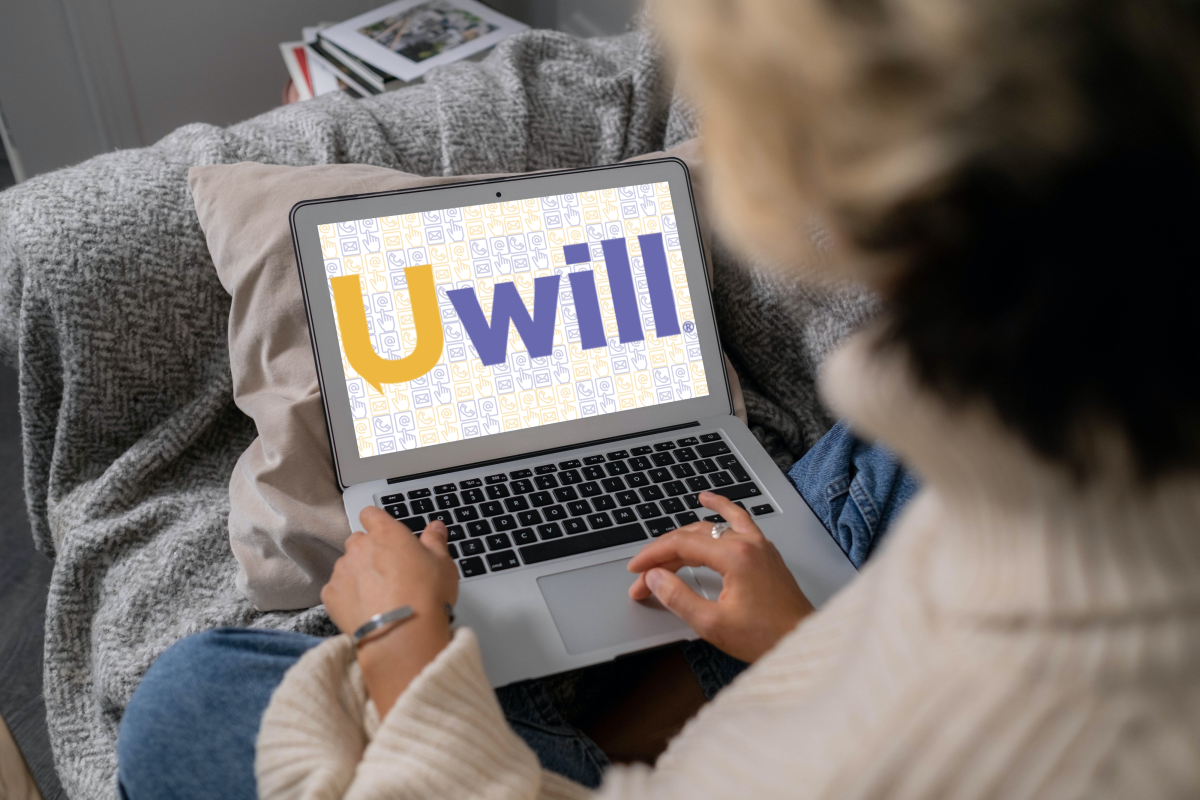Uwill, the virtual mental health service program recently implemented by Drake University, is part of a larger trend on college campuses. In 2018, 59% of colleges offered students some form of online counseling, according to a 2021 study.
Uwill says its on-demand services are the primary benefit they offer to colleges, according to its website. Kayla Bell, director of Drake’s Counseling Center, hopes that this partnership will fill a void in on-campus mental health care.
“In order to ensure that people have access to services and they don’t have to wait months for a counseling appointment…we have to expand to something bigger,” Bell said.
During 2022, the wait for a first appointment at the Counseling Center was between three to four weeks, according to Bell. Since rolling out Uwill, the average wait time is down to five days.
“The students that use [virtual therapy services] regularly love it,” said Marcus Hotaling, director of counseling at Union College in New York. “They like the accessibility. They like the fact that they can schedule a session during non-business hours.”
Dr. D’Arcy Reynolds, a professor at Southeast Missouri University, studies online relationships between therapists and their clients.
“We found that people seem to be calmer in their online sessions versus face-to-face sessions,” Reynolds said. “We started to speculate that maybe people with certain conditions [such as social anxiety] may be particularly well-suited to online psychotherapy.”
Virtual clinics have existed since the 90s but have only recently become lucrative enough for business models such as Uwill’s to be successful, according to Reynolds.
Hotaling, who is also the president of the Association for University and College Counseling Directors, said students have also expressed issues with telehealth, such as the lack of privacy on campus, shorter sessions and lack of face-to-face interaction.
These issues can lead to negative therapeutic outcomes, according to Reynolds and Dr. Marlene Maheu, one of the leading researchers in the field of telemental health.
“If you look at the data for fully working, two-way, live, interactive video, the data are really strong that the efficacy is on par with in-person care,” Maheu said. “When you have to start worrying about privacy and safety, the efficacy drops considerably.”
Maheu has consulted for some of the largest telehealth companies in the U.S. and trained thousands of therapists to practice virtual therapy according to current therapeutic guidelines. She expressed concern that some of these companies have been vague or misleading about their commitment to evidence-based practices.
The research on text-based therapy is not as optimistic as companies claim, according to both Maheu and Reynolds. This is especially concerning if companies are relying on text-based therapy for crisis intervention.
“If you’re taking young people’s lives, and saying you can manage them while they’re in crisis…why all the smoke and mirrors?” Maheu asked.
The Uwill website promises its licensed therapists are “trained in crisis.” A representative from the company was not available for comment.
“I would just hate for someone to wrestle to get to that point of reaching out for help and have an experience that is subpar, that makes them feel as though therapy’s not worth it,” Reynolds said. “There’s a lot at stake.”
Despite these concerns, the increased access that Uwill and its competitors provide will likely help students on campuses across the country.
At Drake, it’s just one of many changes being implemented to address students’ mental health. Bell expects that the number of Uwill credits allotted to each student will be increased in the fall, along with increased wellness resources from Drake’s recreation services, an additional on-campus counselor and the new Broadlawns community clinic that is being constructed.
“There are so many stresses in society and college in general is overwhelming,” Bell said. “We have to think outside the box a little.”
Experts agreed that virtual services are a beneficial addition to the mental health toolbox on campus as long as they are used in conjunction with other resources.
Most importantly, students should be open to new experiences, especially when trying therapy for the first time. It may take some time to find a good provider match or decide if in-person or virtual services are right for you, according to Reynolds.
“My advice would be to trust your gut and know that it’s probably going to take a few times at bat to get that fit,” Reynolds said. “It’s a part of the process.”
Editor’s Note: On May 2, a commenter recommended a correction to Marcus Hotaling’s place of employment. Upon investigating, we realized our error. The original article stated Mr. Hotaling was the director of counseling at Union College in Nebraska, not New York. We have now made the correction.








Scott Cushman • May 1, 2023 at 10:47 am
Correction: Marcus Hotaling is at Union College in New York, not the one in Nebraska.
TD Webmaster • May 2, 2023 at 11:05 pm
Thank you, Mr. Cushman, for pointing out this error! We have made the appropriate correction.